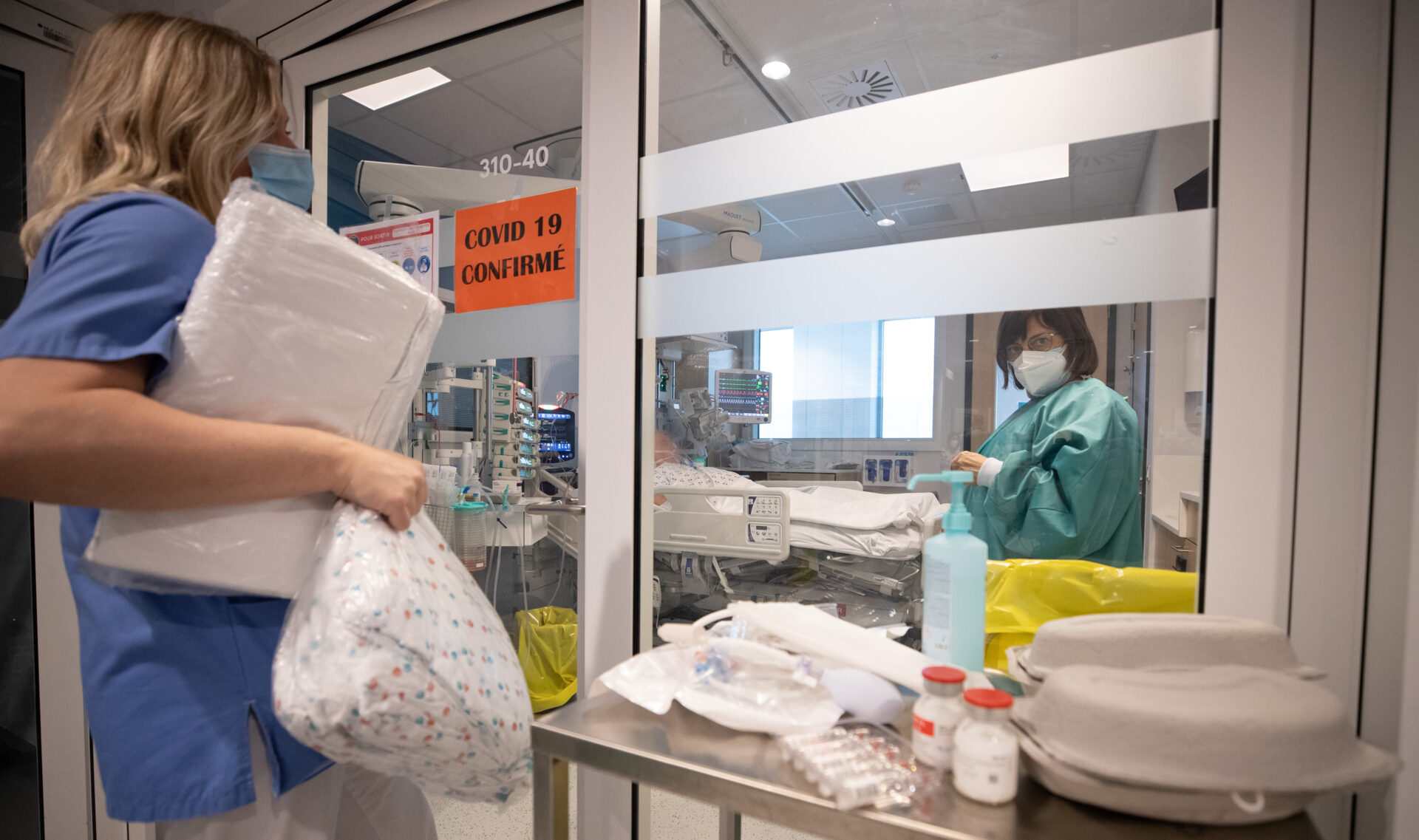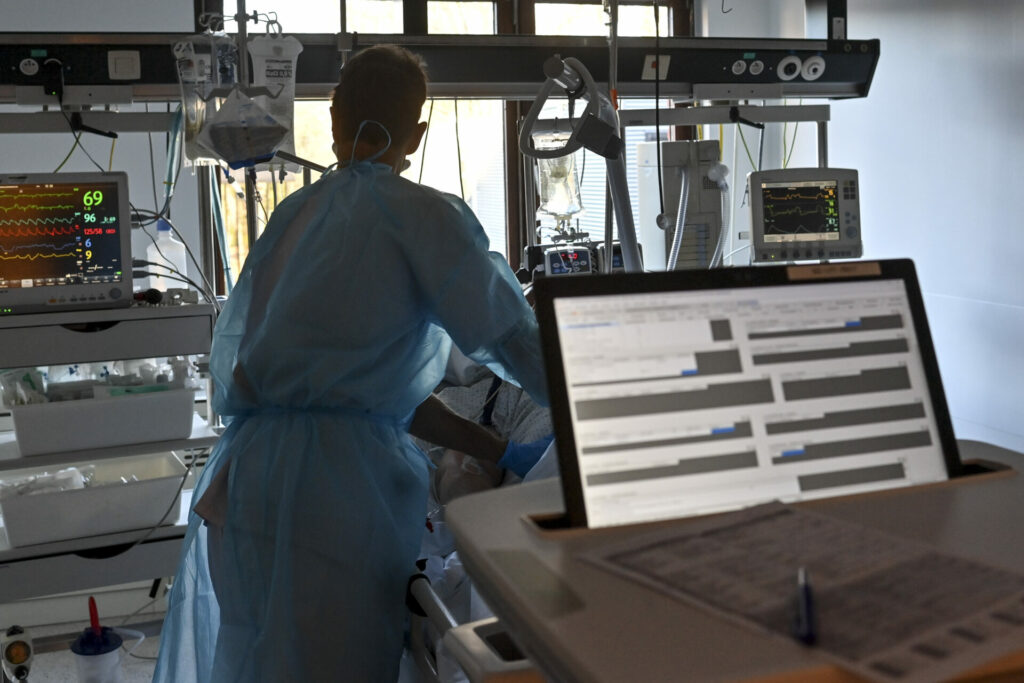Between 18 and 24 October, an average of 1,599 new daily infections were identified, a 37% decrease from the previous week and down from 1,900 on Tuesday, figures published by the Sciensano Institute of Public Health on Friday morning showed.
The average number of tests taken per day decreased to 9,100 per day, while the positivity rate has fallen to 19.7%, meaning slightly fewer than one in five tests was positive.
Omicron BA.5 remains the dominant strain, accounting for 89.9% of all infections. The strain is said to be no more infectious than the other Omicron subvariants and can circumvent accumulated immunity.
In the same week, an average of 8.6 deaths as a result of a Covid-19 infection was recorded (-8%). The total number of deaths in Belgium since the start of the pandemic is 32,902; however, this includes people who died of another cause but who were infected, meaning it is an overestimate of Covid-19 deaths.
Situation in Belgian hospitals
In the last seven days, the average of patients suffering from Covid-19 that were admitted to hospitals each day decreased by a quarter to 83.1, down from 102 on Tuesday. This figure only includes the number of people hospitalised because of the virus.

The ICU of a hospital in Liège. Credit: Belga/ Benoit Doppagne
The total number of people infected with the virus in Belgian hospitals decreased by 200 since Tuesday to 1,218, while the number of patients being treated in intensive care sits at 69, 15 fewer than on Tuesday.
This number does include patients admitted with a different condition who later tested positive.
Reproduction rate, incidence, and total vaccinations
The reproduction rate (the average number of people that contract the virus from each infected person) has plummeted to 0.80. When this figure is below 1, it means that the epidemic is slowing down in Belgium.
Meanwhile, the incidence (the number of new cases per 100,000 inhabitants) has dropped to 250 over the past 14 days.
Related News
- Covid-19 pandemic continues worldwide slow down
- Pharmacists can now issue sick notes for children off school due to Covid-19
As of Tuesday, more than 7.2 million people received a booster dose of the vaccine, representing 76% of over-18s and 62% of the entire population, while almost 3.5 million people have received a second booster dose – equivalent to 30% of the total population.
Adults across all regions in Belgium can now get their additional booster shots (without invitation in Wallonia and Brussels). Find out why this latest jab is important.

